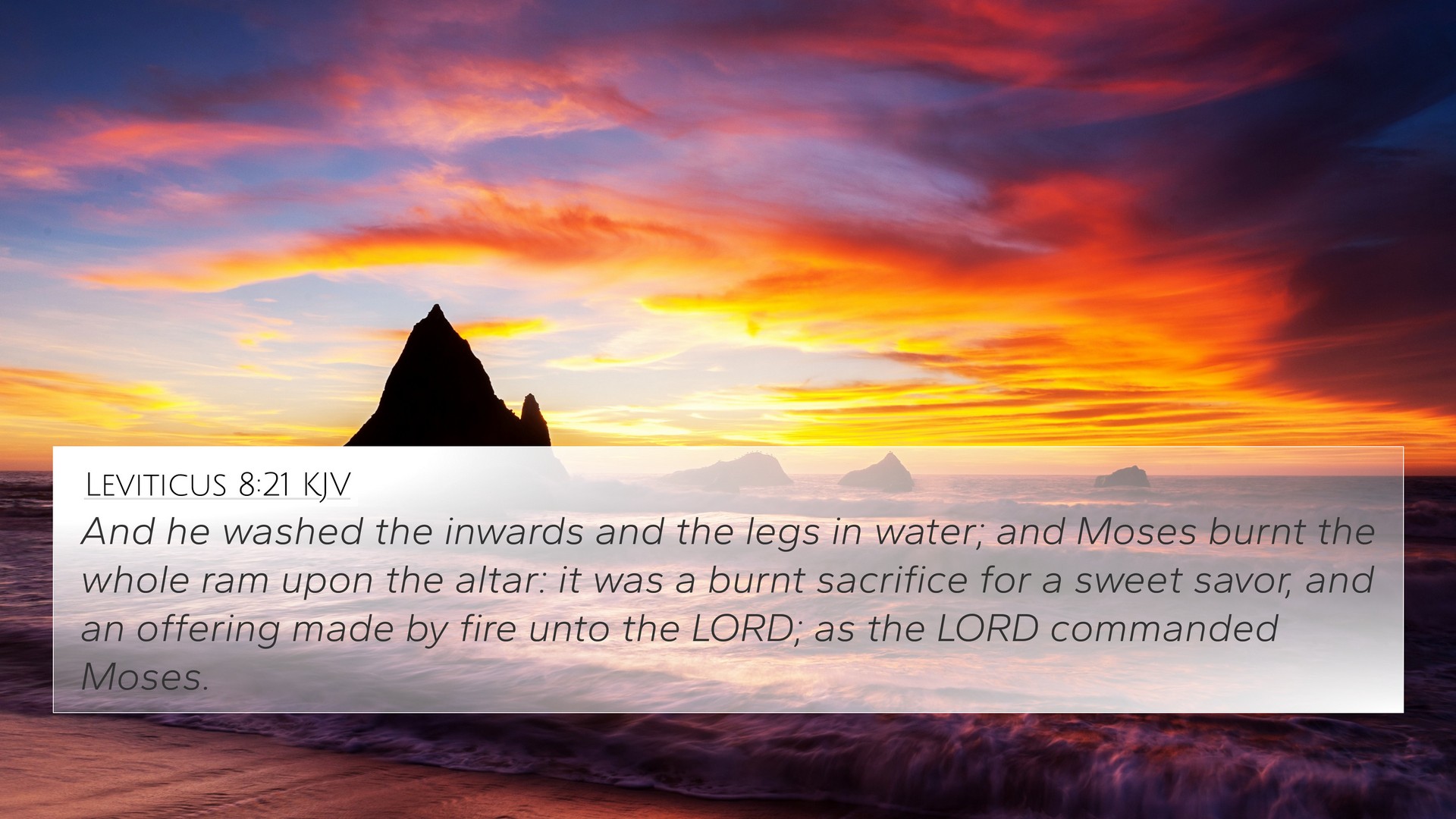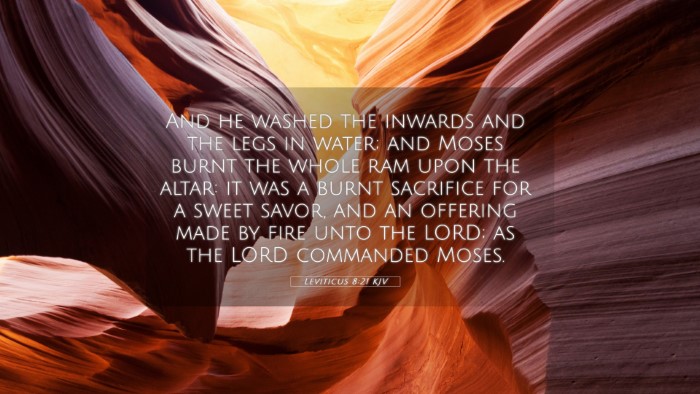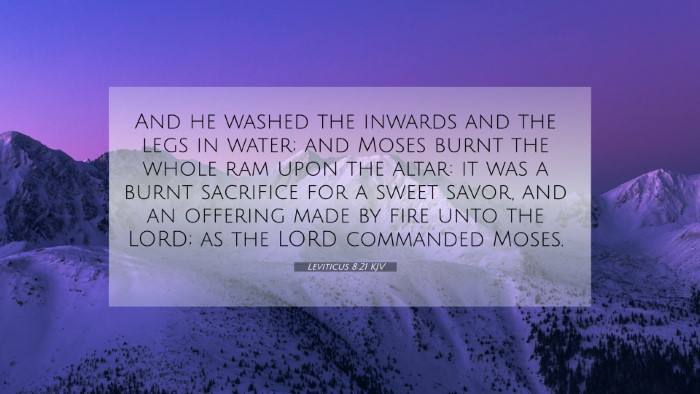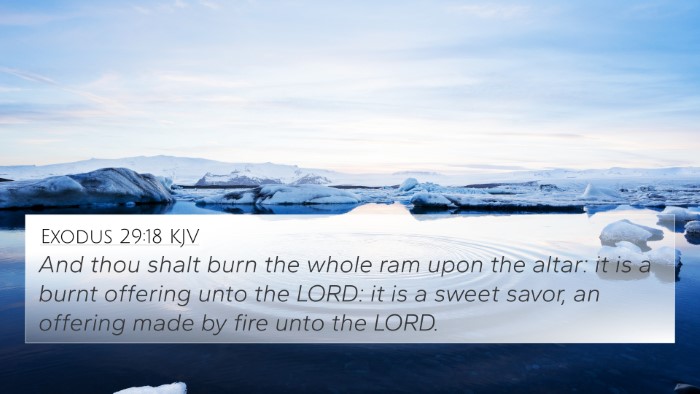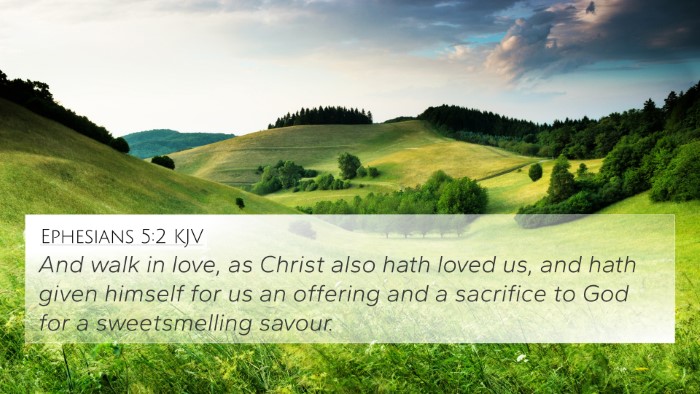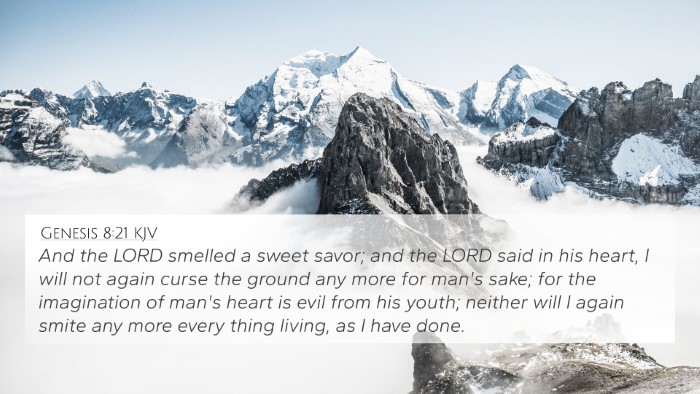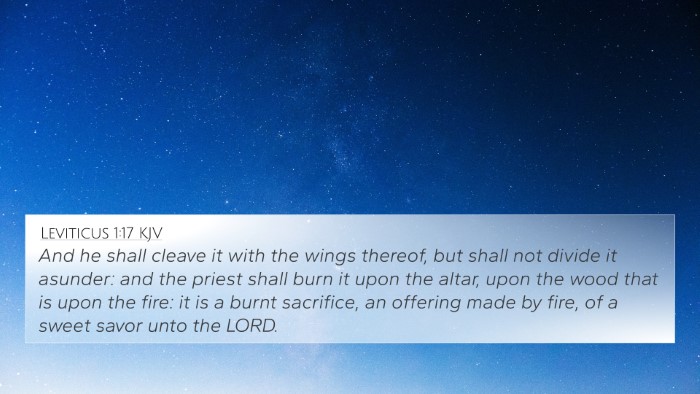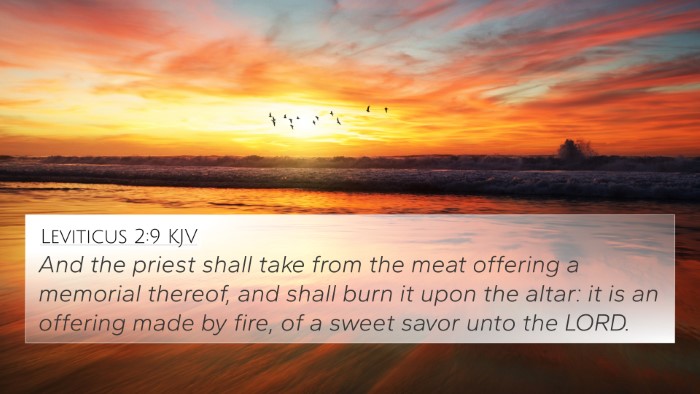Understanding Leviticus 8:21
Leviticus 8:21 states: "And he washed the inwards and the legs in water: and Moses burnt the whole ram upon the altar: it was a burnt sacrifice for a sweet savour, and an offering made by fire unto the LORD; as the LORD commanded Moses."
Meaning and Interpretation
This verse provides profound insights into the requirements of the Levitical priesthood and the significance of sacrificial offerings in relation to God’s covenant with His people. Here we gather insights from various public domain commentaries to illustrate the themes and theological implications.
The Act of Washing
Washing the inwards and the legs of the sacrifice symbolizes purification. Matthew Henry notes that the inner parts represent the thoughts and intentions of the heart, while the legs symbolize the actions of the body. Thus, the washing signifies the need for inner purity and righteous conduct before God.
The Burnt Offering
Albert Barnes emphasizes that the burnt offering was wholly consumed on the altar, indicating total dedication and acceptance by God. This suggests that the offering is not just a ritual but a means of reconciliation with God. It illustrates the concept that true worship involves complete surrender and devotion.
A Sweet Aroma to the Lord
Adam Clarke interprets the phrase "a sweet savour" as a metaphor for God’s pleasure in the acts of obedience from His people. The offering is seen as pleasing and acceptable, which establishes the relational aspect between God and Israel.
Cross-References and Related Verses
Leviticus 8:21 relates closely to several other Bible verses that instruct on the nature of offerings and the purification process:
- Exodus 29:18: Discusses the significance of burnt offerings for atonement and sweet aroma.
- Leviticus 1:9: Highlights the burnt offering as a pleasing aroma to the Lord, underscoring its sacrificial nature.
- Leviticus 4:31: Specifies the role of offerings in making atonement, linking it to divine acceptance.
- Hebrews 9:22: Points to the necessity of shedding blood for forgiveness, relating back to Old Testament sacrificial practices.
- Romans 12:1: Calls believers to present their bodies as living sacrifices, paralleling the sacrificial principle in Leviticus.
- Isaiah 53:10: Prophecies about the suffering servant’s sacrifice, connecting the Old Covenant with the New.
- 1 Peter 2:5: Describes believers as spiritual sacrifices acceptable to God, emphasizing the ongoing nature of sacrifice in Christian life.
Thematic Connections
The themes present in Leviticus 8:21 extend beyond the realm of ancient Israelite worship and into the teachings of the New Testament:
- Obedience and Worship: The importance of following God’s commandments as an expression of true worship. (1 Samuel 15:22)
- Purity: The necessity of inner purity for divine communion highlighted in Jesus' teachings. (Matthew 5:8)
- Sacrifice: The concept of whole-hearted dedication to God reflected in Christ's ultimate sacrifice. (John 3:16)
Resources for Study
To deepen understanding and explore cross-references further, consider the following resources:
- Bible Concordance: Useful for finding specific verses related to themes of sacrifice and worship.
- Bible Cross-Reference Guide: A comprehensive system to track similar themes across the Old and New Testament.
- Cross-Reference Bible Study: A method to enhance biblical understanding by linking scriptures together.
Conclusion
Leviticus 8:21 offers rich theological insights into the nature of sacrifices, purification, and dedication to God. By exploring related verses and themes, we uncover a web of interconnected scriptures that reveal the depth of God’s covenant relationship with humanity.
